The NOAA-NAAEE Collaborative Aquaculture Literacy mini-grants awardees' collaborative projects reached four regions and forged partnerships between informal learning institutions, seafood farmers and organizations, and NOAA experts. Grant activities focused on the co-production and delivery of essential education and outreach resources to the target audiences served by understanding and discussing aquaculture topics related to their community.
Read about their journeys in the Harvest Stories blog post collection on eePRO >
Image
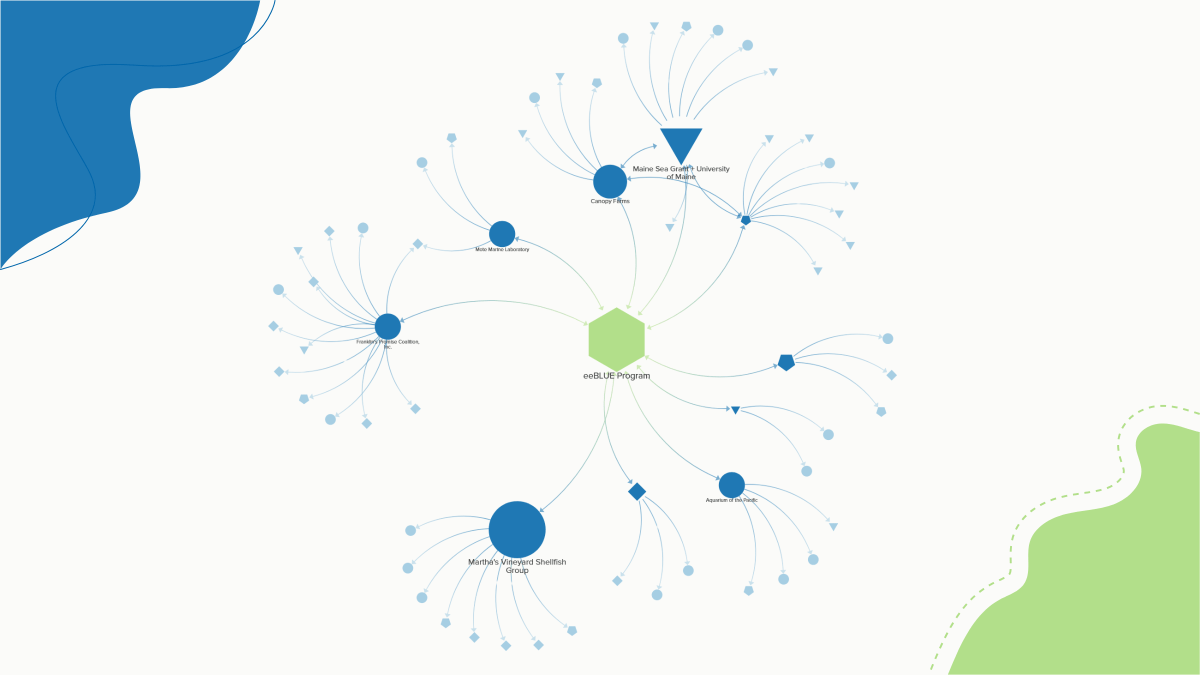
2021 Program Evaluation
Visit the evaluation page to dive into the data, stories, and real-world impact of this program!
Meet the eeBLUE Aquaculture Literacy Mini-Grants Program Awardees!
Image
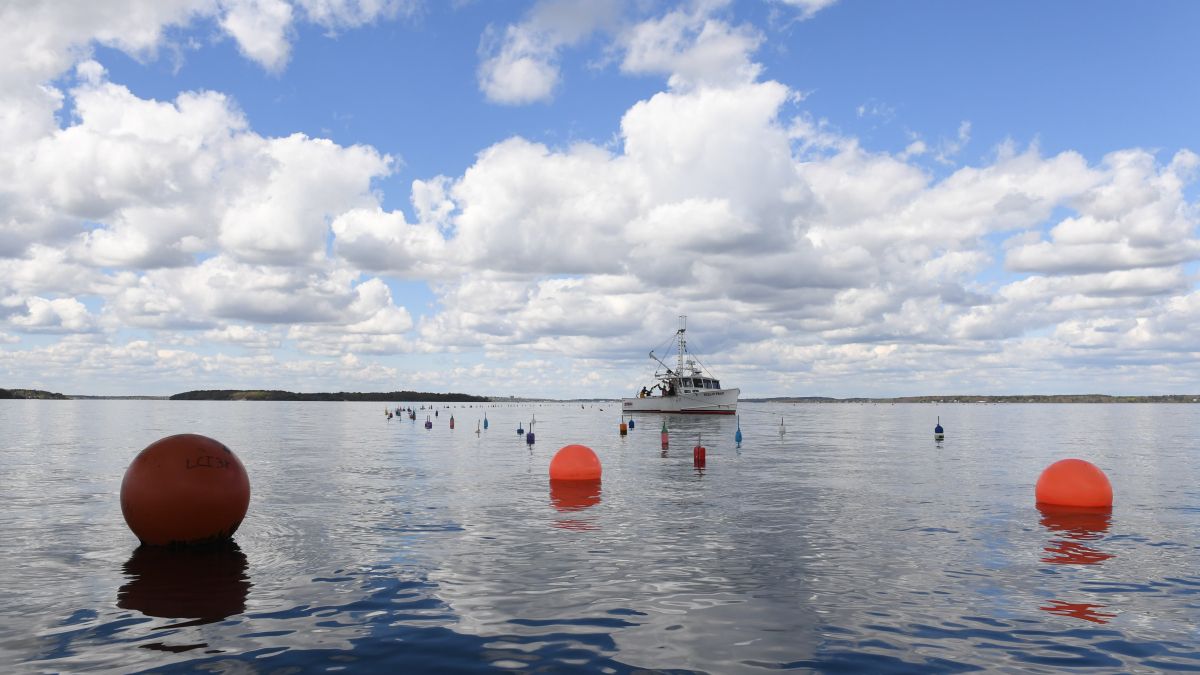
Atlantic Sea Farms
Kelp to the Kitchen: Bringing Seaweed and Chefs Together, Saco, ME
Atlantic Sea Farms teamed up with the Henry P. Kendall Foundation, Maine Sea Grant, and New England Ocean Cluster to bring Kelp to the Kitchen for industry professionals. Their project educated chefs, food-industry personnel, seaweed producers, and the broader public on the culinary uses of domestically grown fresh seaweed. Through cooking demonstrations and workshops, the team has highlighted the sustainable nature of Atlantic Sea Farm’s expanding seaweed industry and elevated knowledge of seaweed aquaculture.
Image
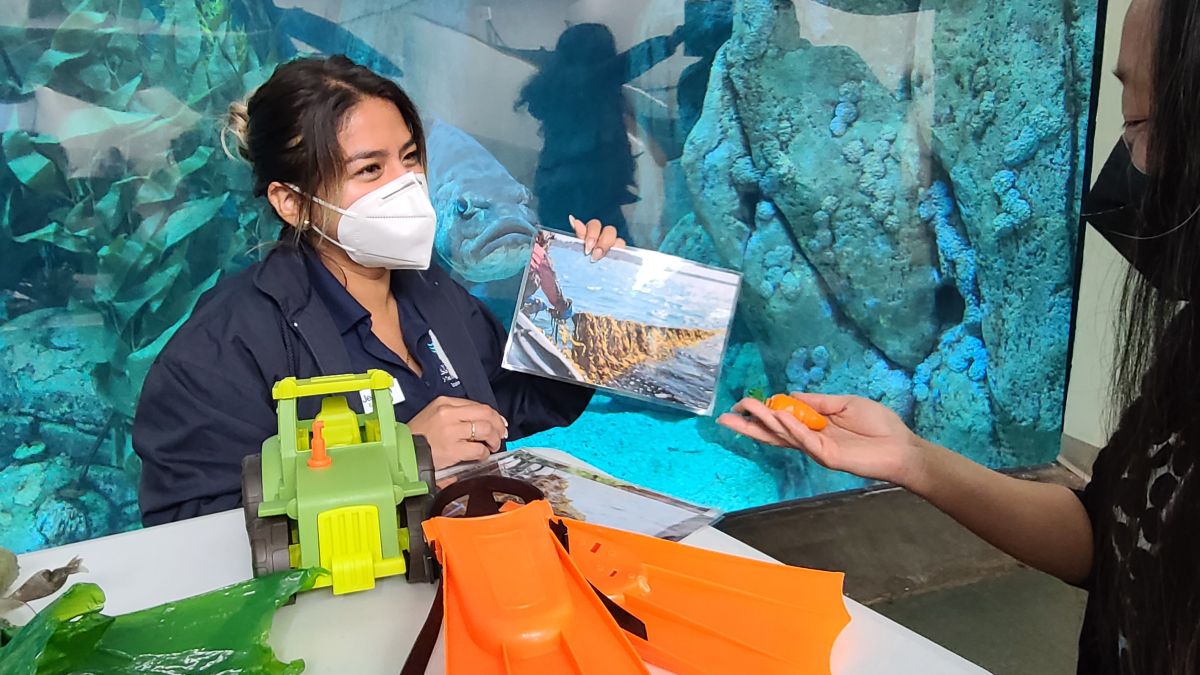
Aquarium of the Pacific
Ocean Farmers, Long Beach, CA
The Aquarium of the Pacific, in collaboration with Holdfast Aquaculture and USC-Sea Grant, provided a foundation for more diverse opportunities to educate broader audiences about marine aquaculture. Focusing on seaweed aquaculture, the project assessed how families learn about seaweed aquaculture through play-based activities for young children. This project has developed an experience for young children to imagine they are ocean farmers, learn about what ocean farming is and looks like, and has evaluated what the kids and their families learned as a result.
Image
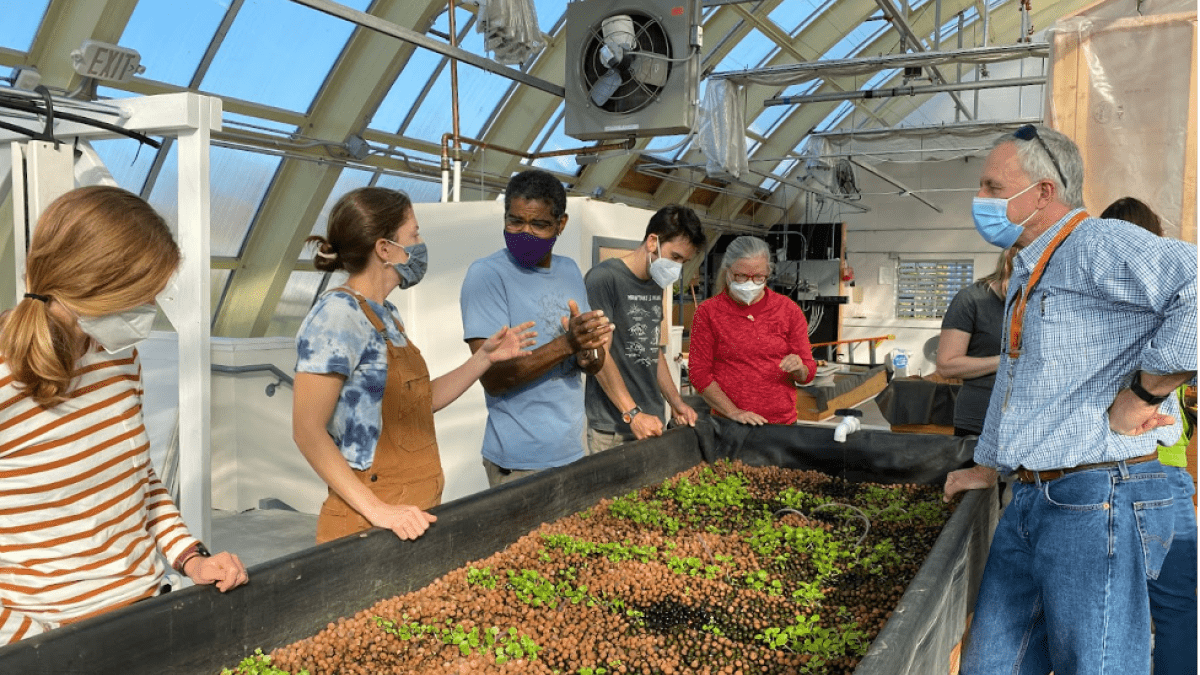
Canopy Farms L3C
Bringing aquaculturists and the public together through the sci-cafe experience, Brunswick, ME
Canopy Farms L3C, and their partners Hurricane Island Center for Science and Leadership, Kaskolos Sea Vegetables, and Maine Sea Grant’s Darling Marine Center, teamed up to increase aquaculture literacy and seafood consumption by strengthening the reach of the Alternative Seafood Network in coastal Maine communities. Partners brought aquaculturists into an informal science cafe setting to engage directly with the public about aquaculture’s role in Maine’s coastal economy. This increased knowledge transfer and experience with products and practitioners of the aquaculture industry has helped build stronger connections between the sector and the communities it serves.
Image
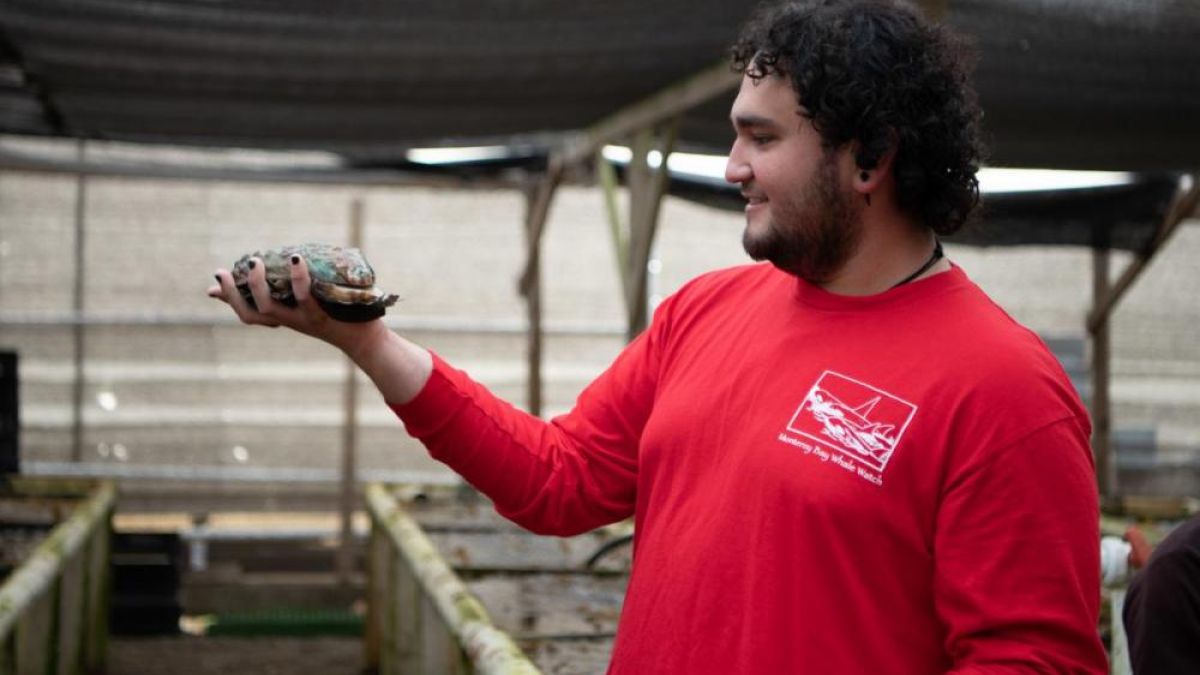
The Cultured Abalone Farm
Abalone Aquaculture Education Pilot Project, Goleta, CA
In a local partnership between the Cultured Abalone Farm, NOAA Fisheries Southwest Fisheries Science Center, and the Santa Barbara Museum of Natural History Sea Center, this project provided high school students and the general public with the knowledge and experiences necessary to understand the importance of sustainable aquaculture. Partners co-developed a high-school-level unit of instruction focused on abalone aquaculture. At the Sea Center, they provided informal learning experiences to staff and volunteers, and teamed up with the Sea Center’s exhibit design experts to update their white abalone exhibit. The revamp has helped visitors understand the important role aquaculture plays in white abalone restoration.
Image
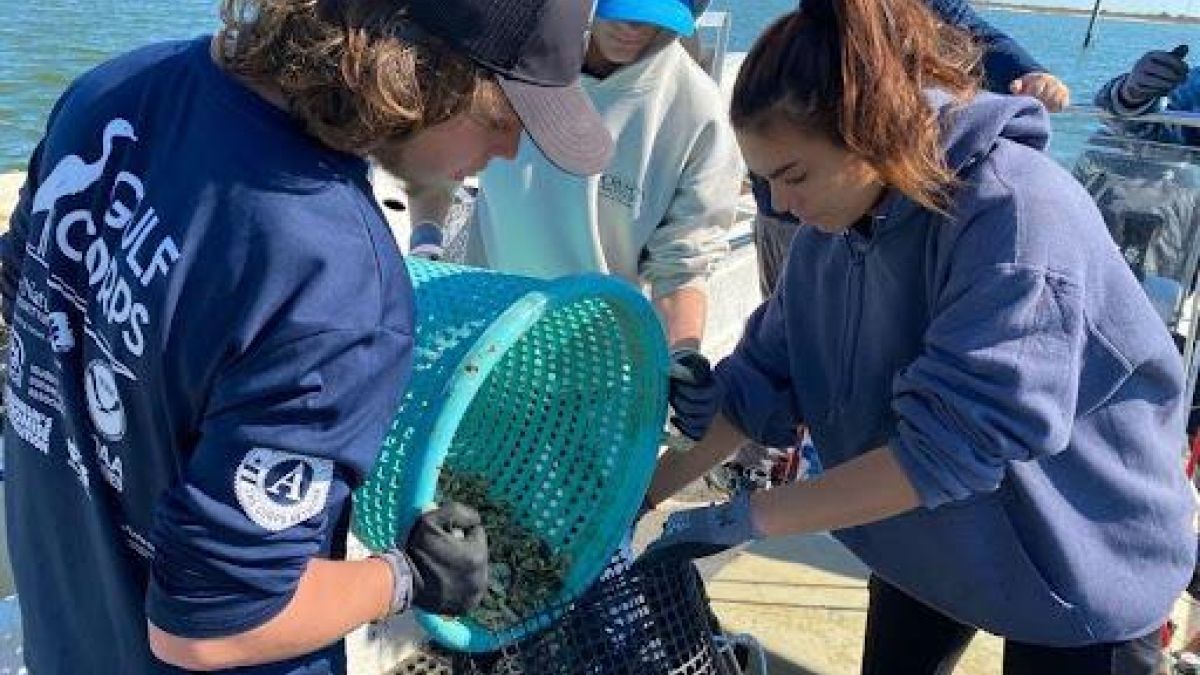
Franklin's Promise Coalition
Apalachicola Bay Aquaculture Demonstration Pilot Project, Apalachicola Bay, FL
Franklin’s Promise Coalition and Apalachicola National Estuarine Research Reserve partnered with the Florida Department of Agriculture and Consumer Services Aquaculture Division and Rattlesnake Cove Oyster Company to engage a cohort of youth interested in, and prepared for, the aquaculture workforce. Ultimately, the project aimed to demonstrate the potential for greater community resilience through aquaculture. By educating local community members about career opportunities, and enhancing and communicating aquaculture education best practices, activities have increased public awareness and literacy for oyster aquaculture in the Apalachicola region.
Image
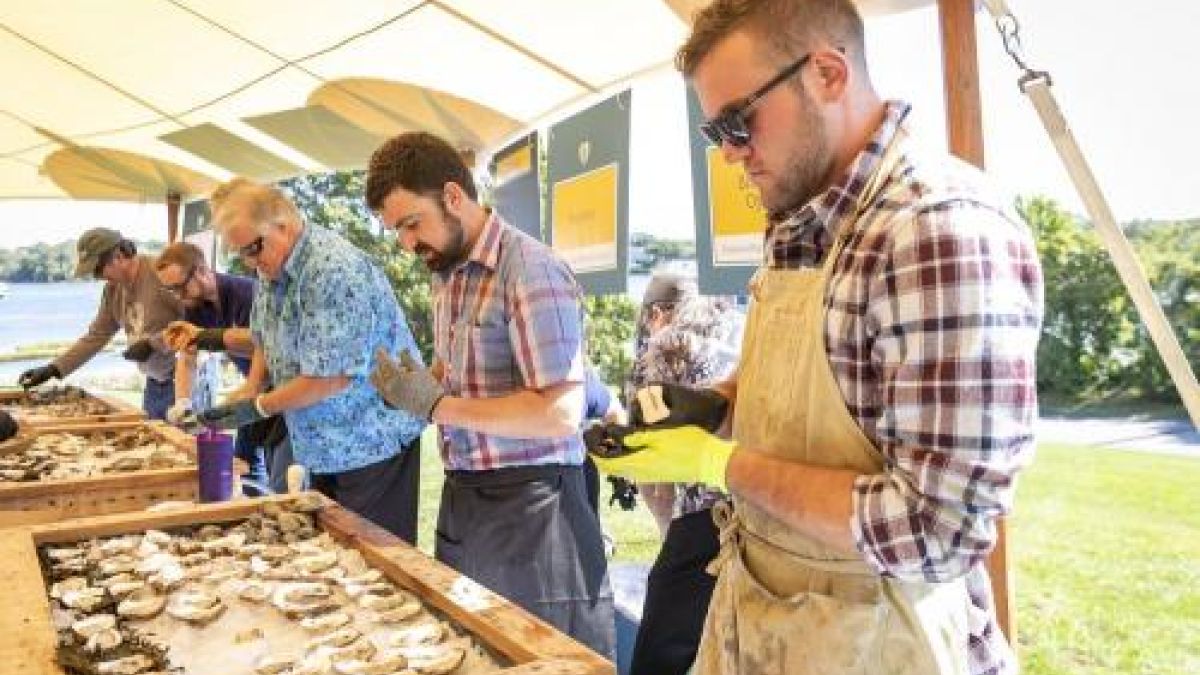
Martha's Vineyard Shellfish Group
Martha’s Vineyard Oyster Aquaculture Literacy Program: The Magic of Martha’s Vineyard Oysters, Oak Bluffs, MA
Martha's Vineyard Shellfish Group, in close partnership with Cottage City Oysters, Martha's Vineyard Museum, Martha's Vineyard Oyster Fest, and NOAA Fisheries Greater Atlantic Region Fisheries Office, created an oyster farming education program making the island’s oyster industry accessible to public audiences. Four unique learning experiences kickstarted an aquaculture literacy initiative on the island: educational tours of local oyster farms accompanied by Vineyard biologists, a four-month installation at the Martha’s Vineyard Museum with an accompanying STEM program at the island’s K–12 schools, opportunities at an annual oyster festival taking place in the fall, and hands-on oyster preparation and shucking events with notable local food experts.
Image
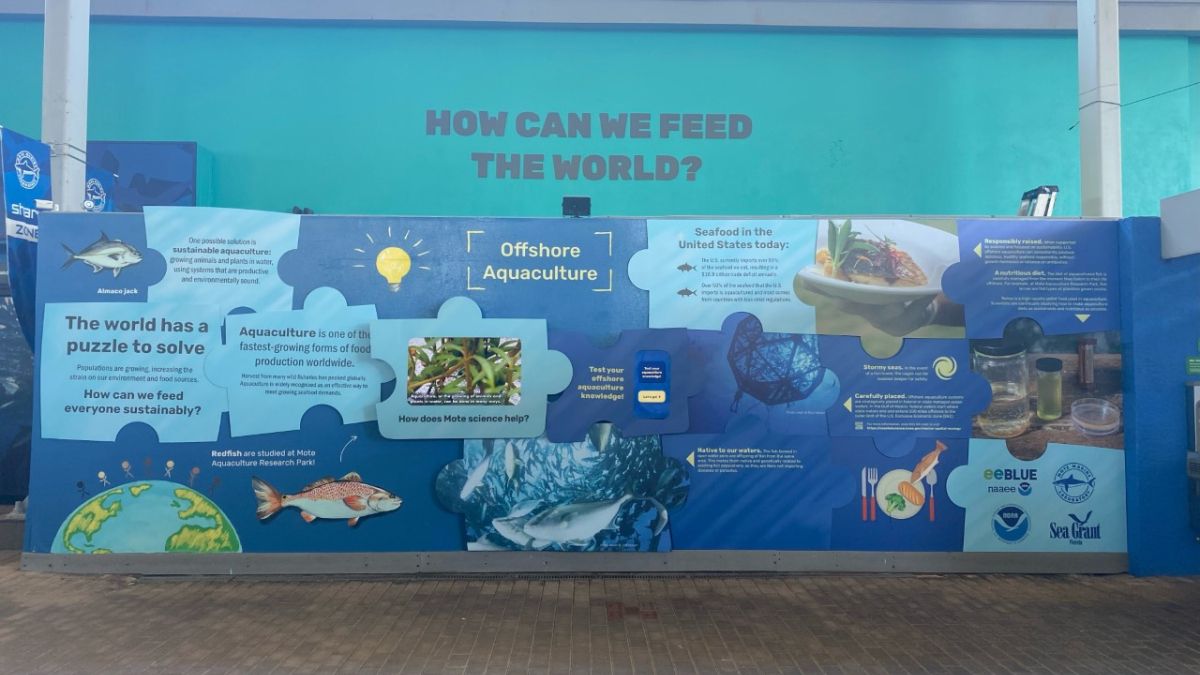
Mote Marine Laboratory and Aquarium
Offshore Optics: Taking a Closer Look at Offshore Aquaculture, Sarasota, FL
Mote Marine Laboratory and Aquarium partnered with Florida Sea Grant and Gulfstream Aquaculture to develop and install a new interactive exhibit at the aquarium that communicated information about sustainable offshore—or open ocean—aquaculture. Visitors gained access to learning opportunities at the aquarium itself, and to a community-based educational outreach platform for understanding the importance of offshore aquaculture in Florida’s Gulf of Mexico waters. Improving aquaculture literacy about the complexities of sustainable offshore aquaculture has allowed the Sarasota, Florida community, its visitors, and their local government officials to better understand the environmental, social, and economic implications of the sector in their region.
Image
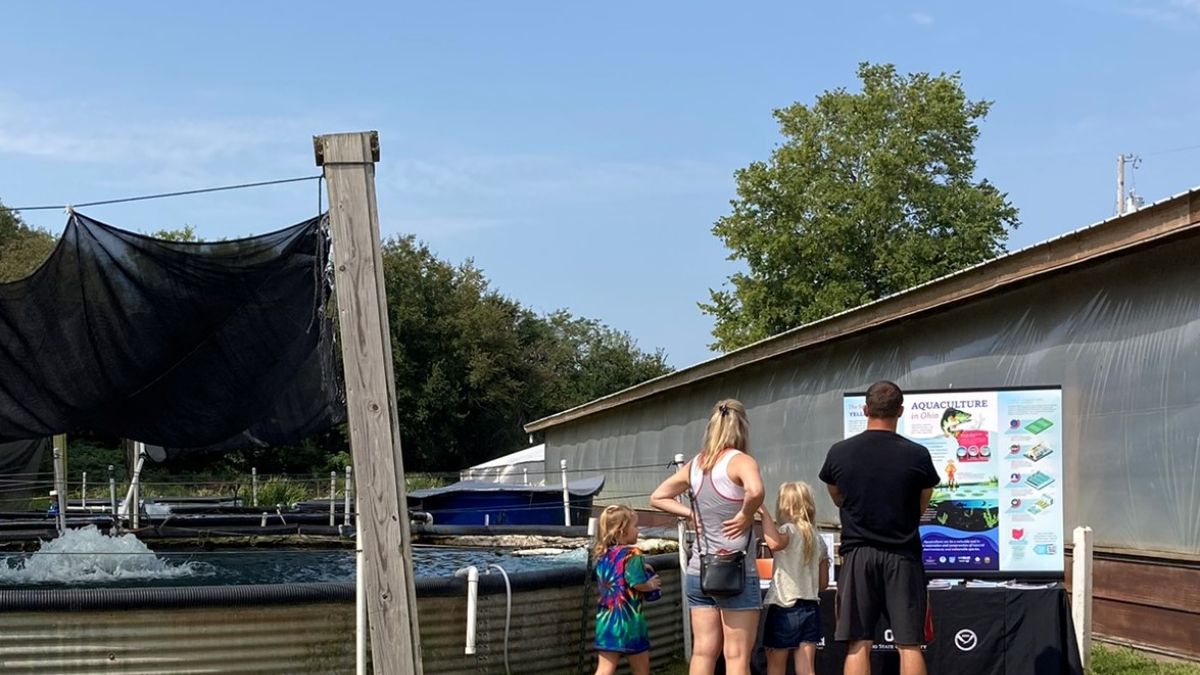
Ohio Sea Grant
The Story of Yellow Perch: Understanding Ohio's Wild and Farmed Fisheries, Columbus, OH
Ohio Sea Grant used a common, recognizable species in Ohio and the Great Lakes region, the Yellow Perch, to share the story of aquaculture in their communities. In partnership with Lake Erie Nature and Science Center, Ohio State University’s Aquatic Visitor’s Center at Stone Lab, and the Ohio Aquaculture Association, the project developed educational displays and materials to increase visitors' understanding of the production systems, including outdoor ponds and indoor aquaponics and recirculating aquaculture systems, that help provide safe and sustainable fish products to local markets and restock fish ponds. Ultimately, the project has enhanced the public’s understanding of the role of aquaculture in food security in the region.
Image
University of Georgia Marine Extension and Georgia Sea Grant
SEE (Social, Economic, Ecological) Aquaculture-Enhancing Marine Aquaculture Awareness Through Outreach Education, Savannah, GA
University of Georgia Marine Extension and Sea Grant offered communities in the southeast region opportunities to engage in educational programming explaining the importance of shellfish aquaculture in the 21st century. Through interactive and mobile exhibits at the Georgia Aquarium, the project provided aquarium visitors with the basic knowledge and understanding necessary to participate in discussions about the social, economic, and ecological implications of shellfish aquaculture. By co-developing materials, partners have built lasting collaborations and the capacity to enhance marine aquaculture awareness through outreach education.
Image
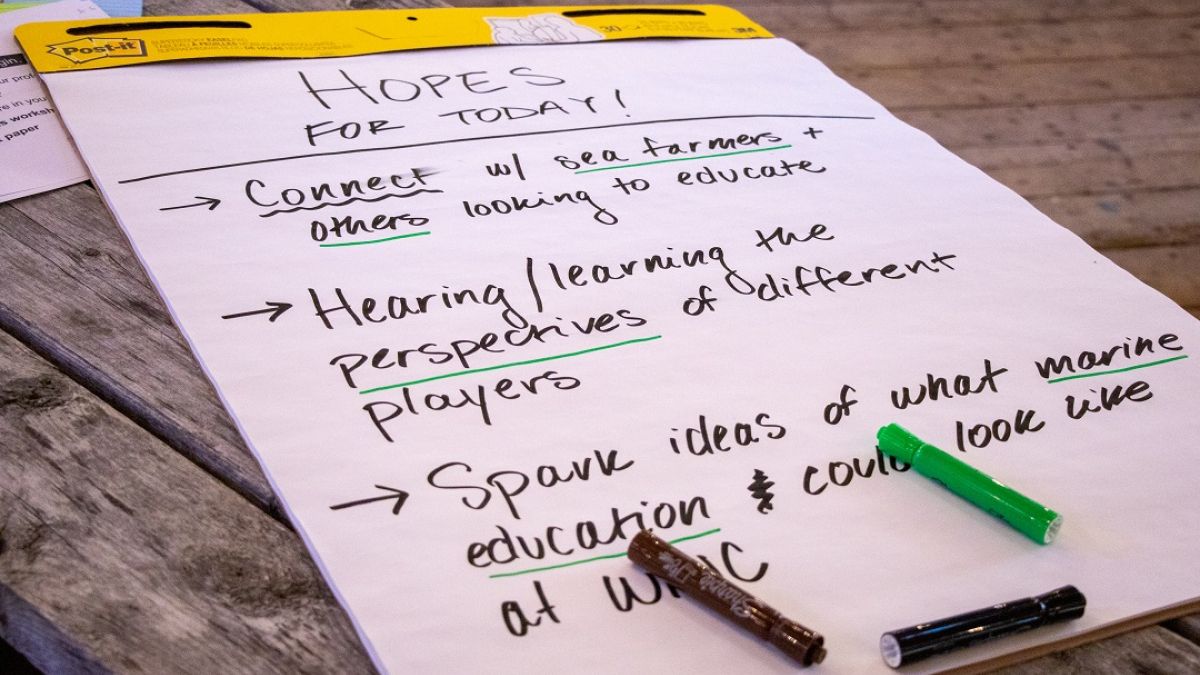
University of Maine, Maine Sea Grant, University of Maine Cooperative Extension
Aquaculture ME! Supporting Cross-Sector Collaborations in Maine Aquaculture Education, Orono, ME
University of Maine Sea Grant and Maine Cooperative Extension leveraged their existing Aquaculture ME! initiative to expand the reach of their successful model that connects classroom teachers with aquaculture science and industry. Across Maine, aquaculture education offers a unique opportunity to build connections in coastal communities and create job pathways for younger generations. This project leveraged existing resources, forged genuine partnerships, and supported creative approaches to enhancing aquaculture literacy in Maine’s communities. Through activities with Boothbay Sea and Science Center, Children’s Museum & Theater of Maine, and Maine Family Farm and Sea Cooperative, partners have built the capacity of educators to offer high-quality aquaculture programming in both formal classroom and informal educational settings.
Stay Connected!
Stay informed on the latest from our eeBLUE Aquaculture Literacy Mini-Grants program! Subscribe to our eeNEWS newsletter for updates on current grantees and their projects.